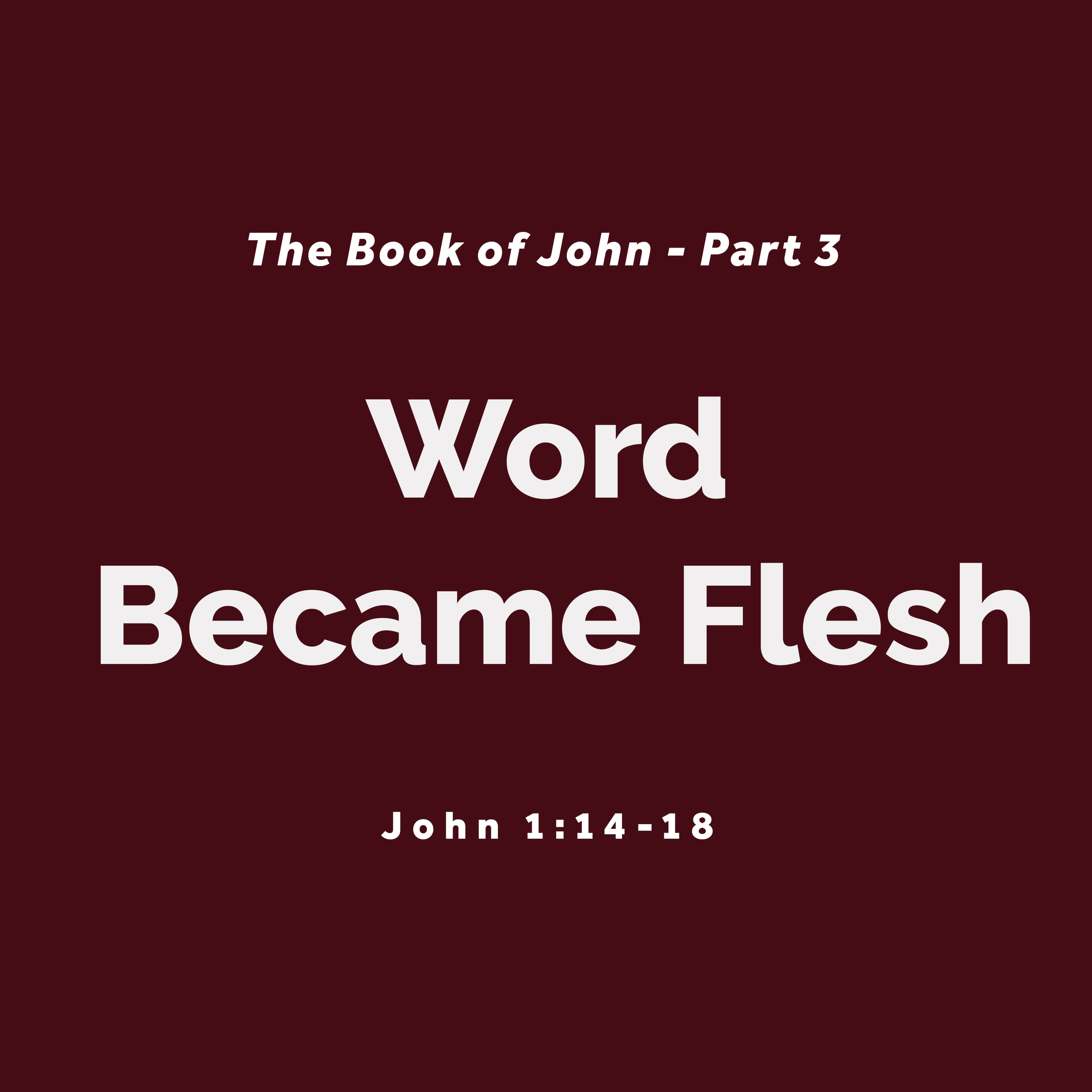
Word Became Flesh
By Ed Pilapil Jr.
John 1:14-18 • February 12, 2023 • English Service 10:00 AM
Sermon Introduction
John established that the Word was God, and nothing could exist without the Word. But then John proceeds to explain that the Word became flesh and dwelt with the disciples. John claimed to have seen His glory, perhaps making an allusion to the glory of God coming down in the tabernacle or the temple. John wrote his account of Jesus Christ so those who read might believe in who He is and what He did on the cross.
John 1:14-18
14 And the Word became flesh and dwelt among us, and we have seen his glory, glory as of the only Son from the Father, full of grace and truth. 15 (John bore witness about him, and cried out, “This was he of whom I said, ‘He who comes after me ranks before me, because he was before me.’”) 16 For from his fullness we have all received, grace upon grace. 17 For the law was given through Moses; grace and truth came through Jesus Christ. 18 No one has ever seen God; the only God, who is at the Father's side, he has made him known.
Notes
John established that the Word was God, and nothing could exist without the Word. But then John proceeds to explain that the Word became flesh and dwelt with the disciples. John claimed to have seen His glory, perhaps making an allusion to the glory of God coming down in the tabernacle or the temple. John wrote his account of Jesus Christ so those who read might believe in who He is and what He did on the cross.
Grace and truth
The Word took human form and dwelt or “tabernacled” among His people. Similar to Israel seeing the glory of God in the tabernacle, the author claimed to have seen the glory of the only Son. The Son was full of grace and truth.
14 And the Word became flesh and dwelt among us, and we have seen his glory, glory as of the only Son from the Father, full of grace and truth. 15 (John bore witness about him, and cried out, “This was he of whom I said, ‘He who comes after me ranks before me, because he was before me.’”) (John 1:14-15).Grace upon grace
The writer mentioned that they received grace upon grace from His fullness. John contrasted grace and truth through Christ to the law given through Moses. Such abundant grace comes from His fullness.
16 For from his fullness we have all received, grace upon grace. 17 For the law was given through Moses; grace and truth came through Jesus Christ (John 1:16-17).Word made Him known
John ends the prologue with a powerful statement. No one has seen God except the God who was with Him. John reemphasized the opening statement that the Word was with God and was God. The Word made the Father known.
18 No one has ever seen God; the only God, who is at the Father's side, he has made him known (John 1:18).
Application
Submit to the Word
The Word became flesh; thus, we believe in the incarnate Word. Jesus Christ was 100% God who became, in a simultaneous manner, 100% man. It was like God dwelling in the tabernacle of Moses, but more than that.
Believe in His grace
John mentioned the fullness of the Son of God. He is God who took on the form of man to give His life. His death and resurrection are His gifts to all who would believe. Thus, we should believe in who He is and what He accomplished.
Know God and make Him known
The Word knew God and made Him known. By His grace, we know Christ. Thus, we should make Him known. To make Him known is also to reveal the Father. We should never ignore God’s divine direction to proclaim the gospel.
Reflection & Discussion
Who was the Word that became flesh? How did the writer describe Him?
What came through Moses? What came through Jesus Christ?
Who has made God known? Explain based on the cited text.



